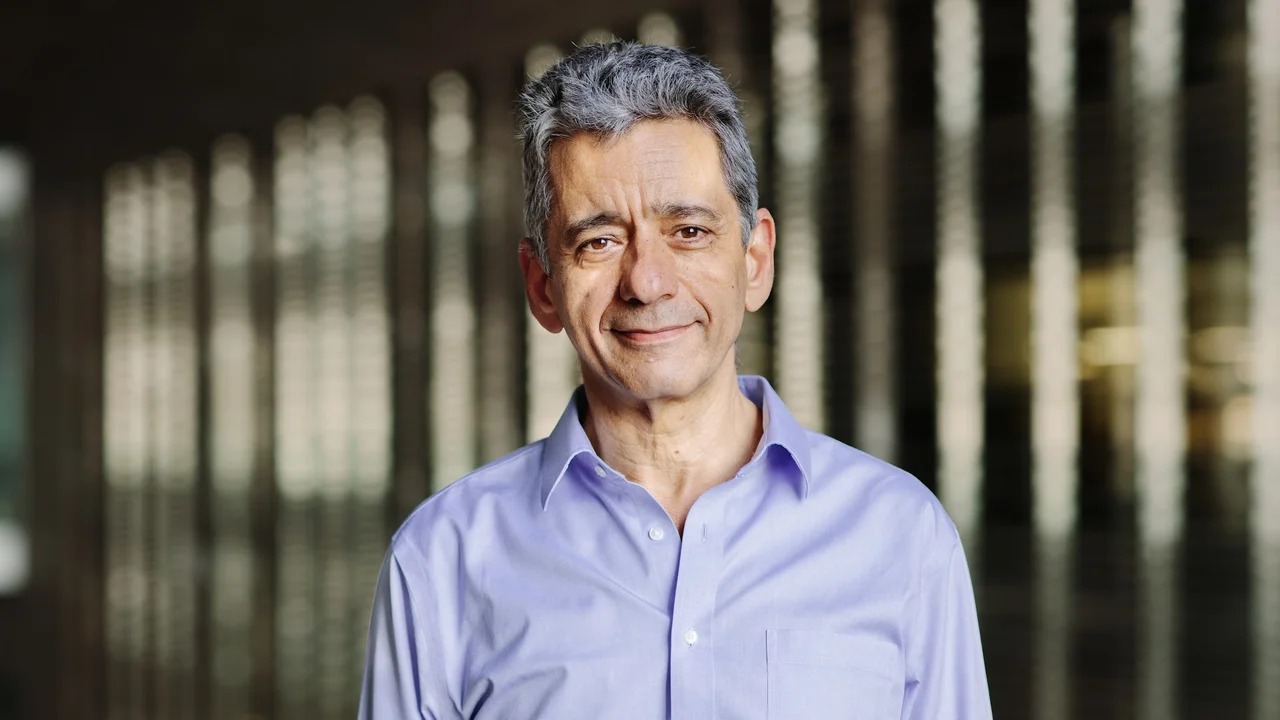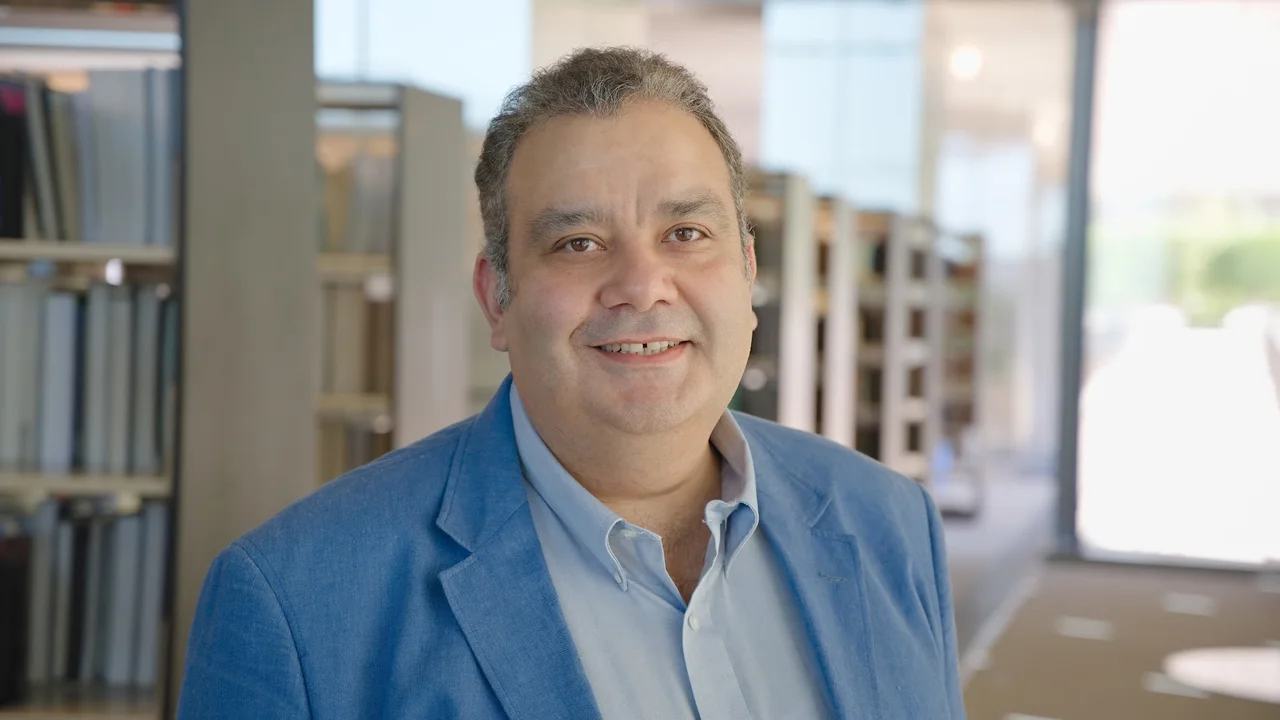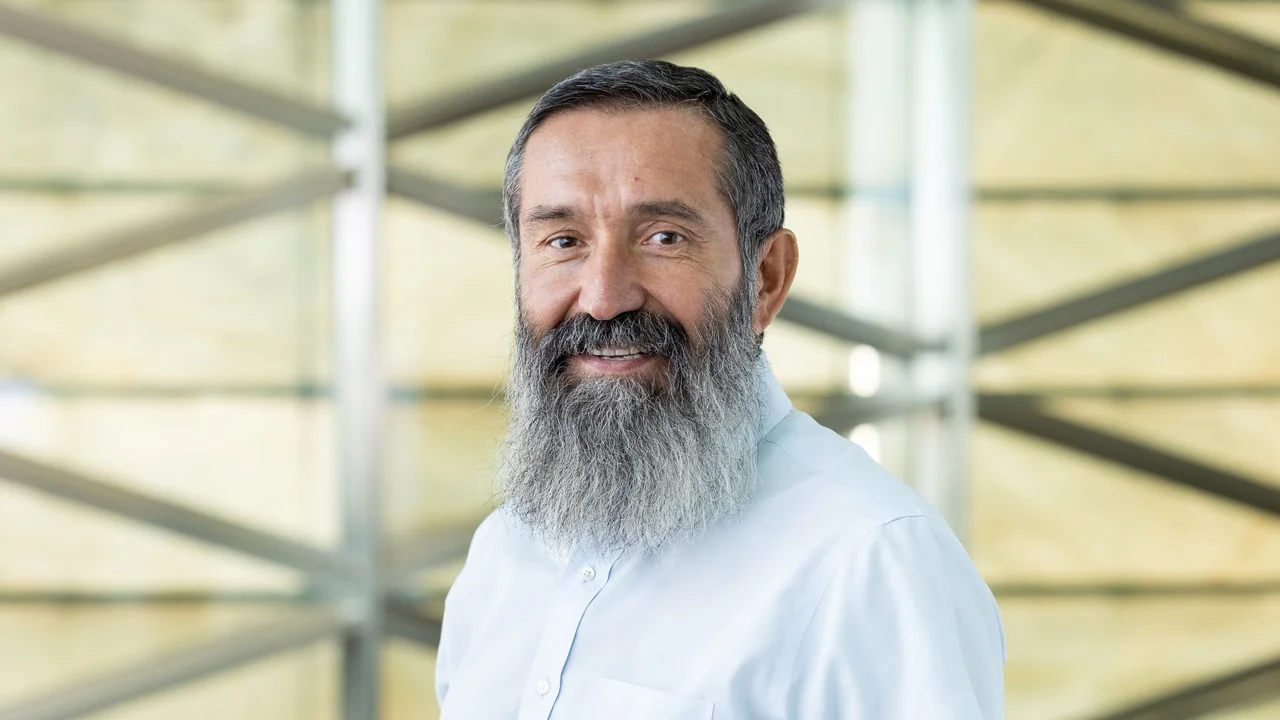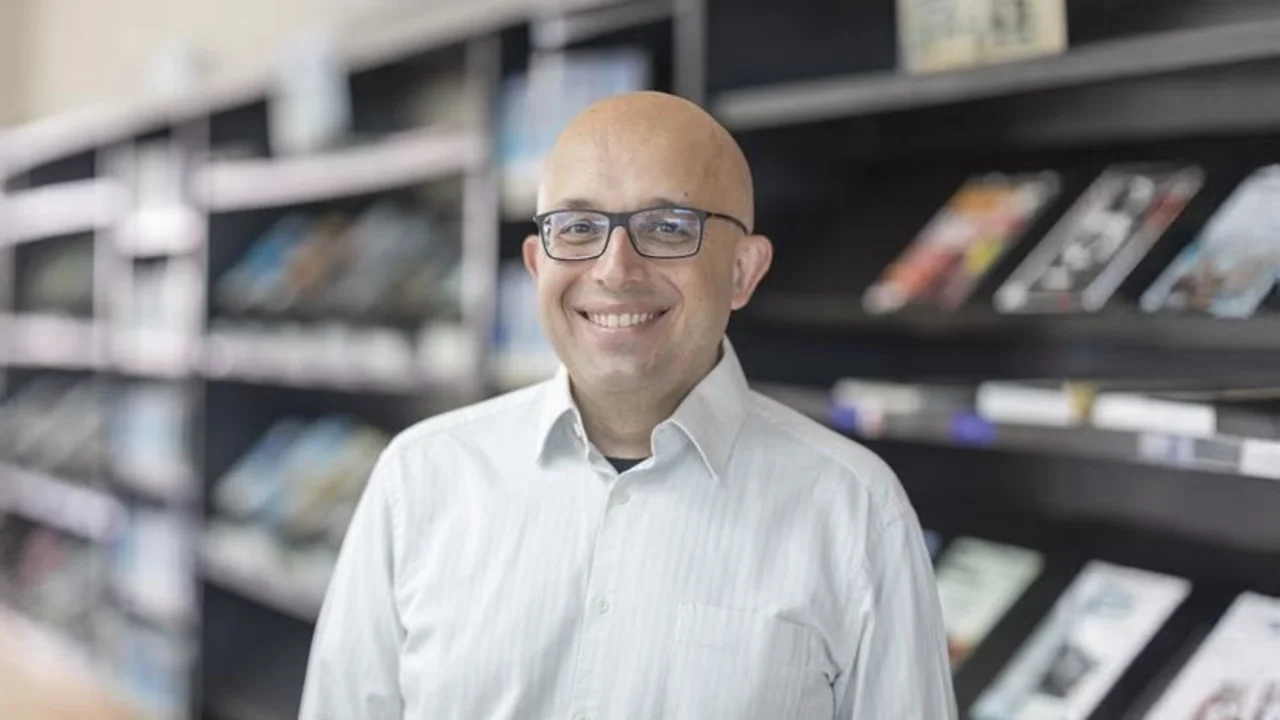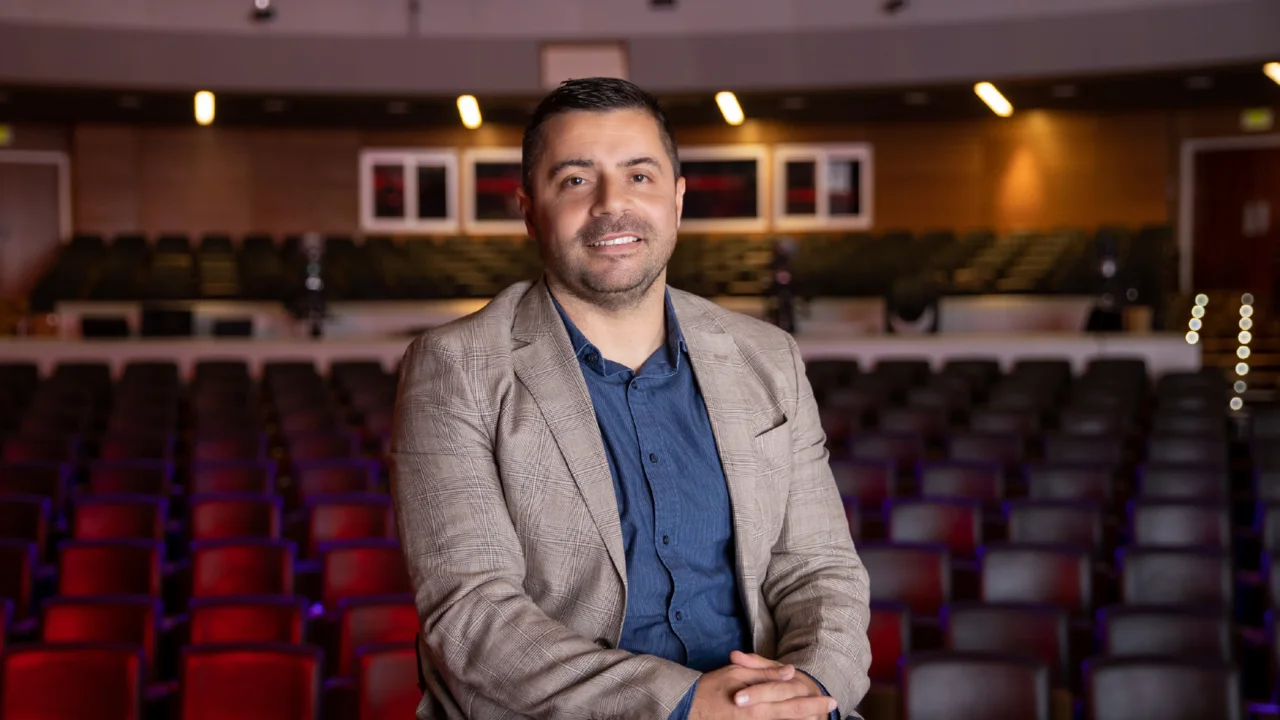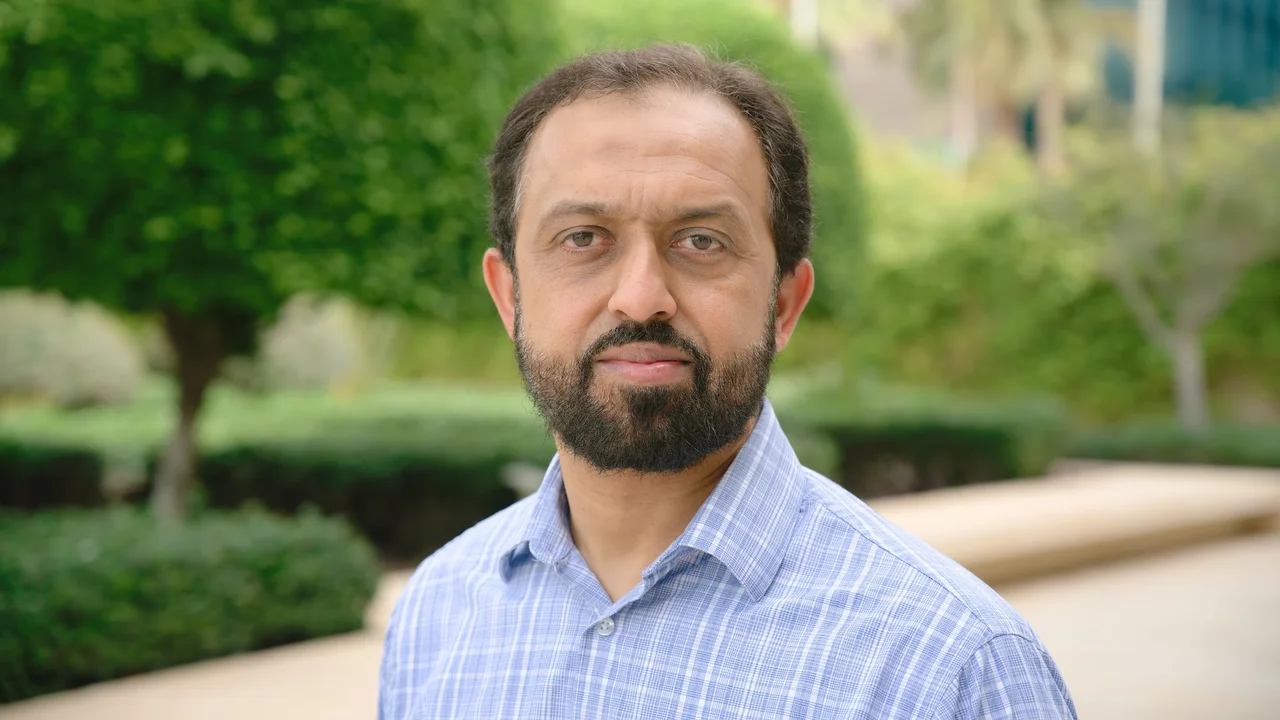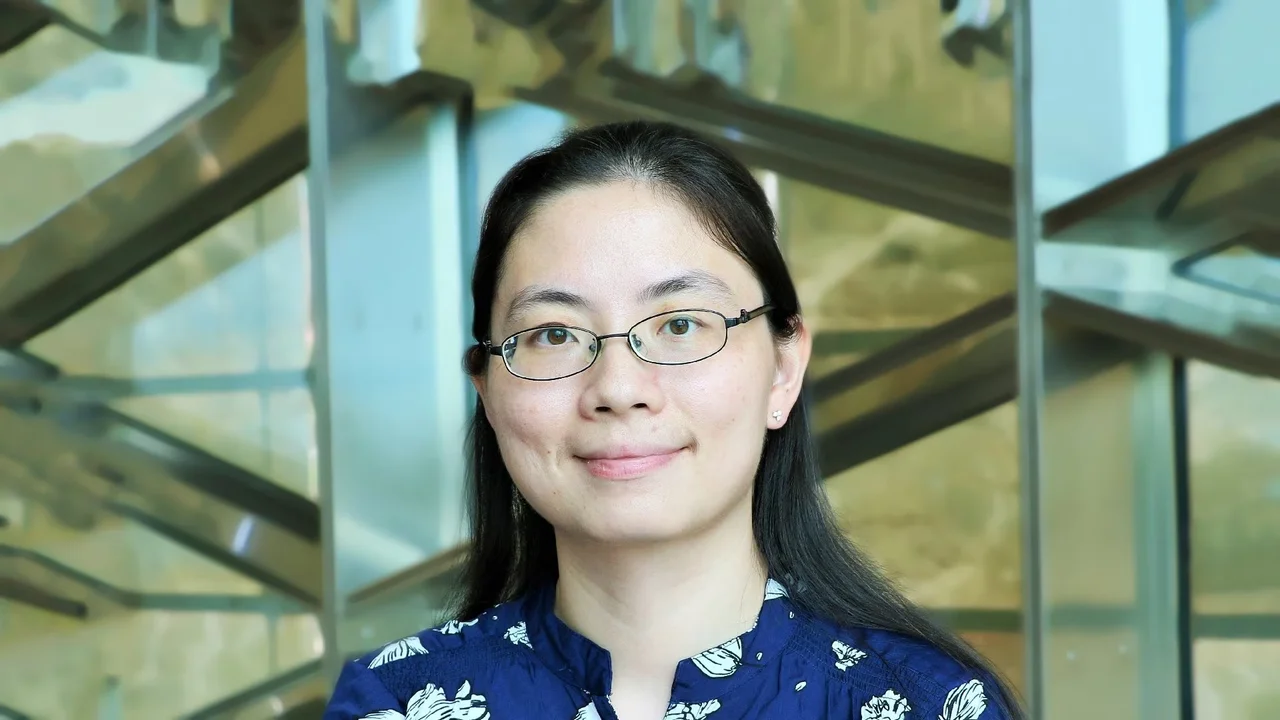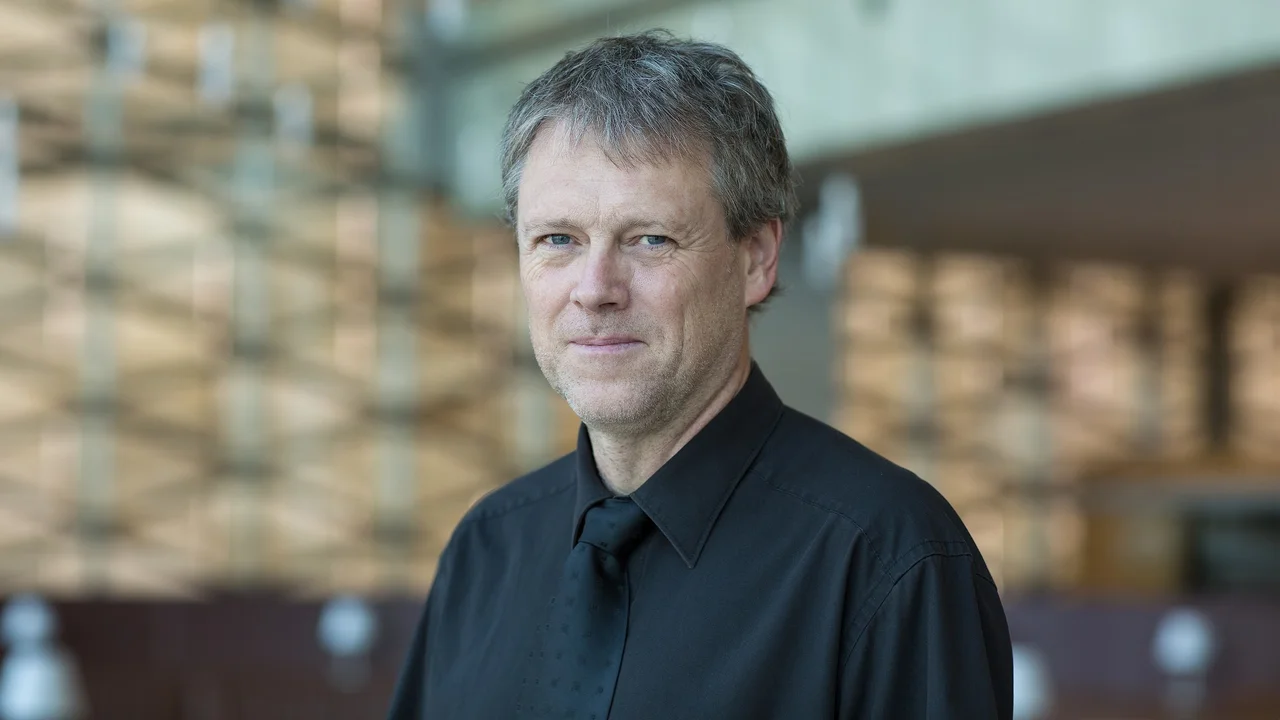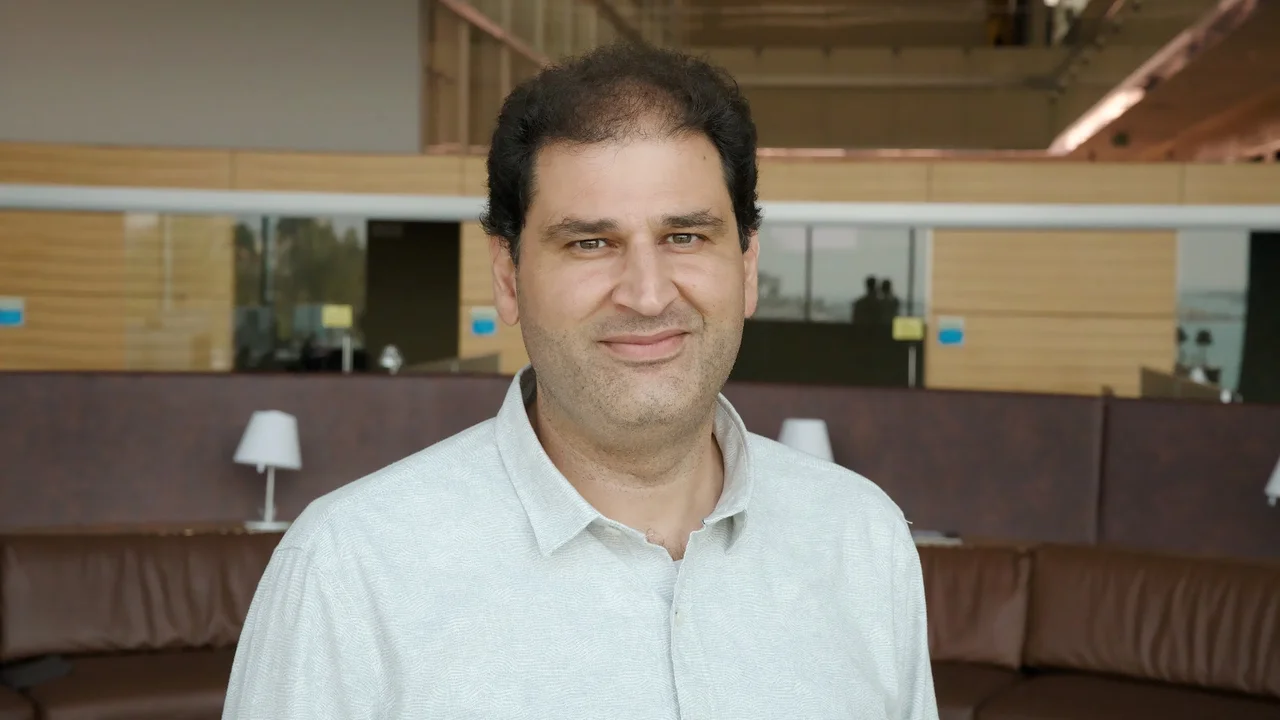Leadership Team
Dean
Biography
Omar Knio received his Ph.D. in mechanical engineering in 1990 from the Massachusetts Institute of Technology (MIT) in the United States. He held a postdoctoral associate position at MIT before joining the mechanical engineering faculty at Johns Hopkins University in 1991. In 2011, he joined the Department of Mechanical Engineering and Materials Science at Duke University, where he also served as associate director of the Center for Material Genomics. In 2012, he was named the Edmund T. Pratt, Jr. Professor of Mechanical Engineering and Materials Science at Duke.
In 2013, Knio joined the Applied Mathematics and Computational Sciences (AMCS) Program at KAUST, where he also served as deputy director of the SRI Center for Uncertainty Quantification in Computational Science and Engineering and as the interim dean of the Computer, Electrical and Mathematical Sciences and Engineering (CEMSE) Division. In 2024, he was appointed associate vice president of National Partnerships, Engagement and Academic Liaison, at the KAUST National Transformation Institute.
He is a founding associate editor of the SIAM/ASA Journal on Uncertainty Quantification and currently serves on the editorial boards of the International Journal for Uncertainty Quantification and Theoretical and Computational Fluid Dynamics.
Knio has received several awards, including the Associated Western Universities Faculty Fellowship Award in 1996, the Friedrich Wilhelm Bessel Award in 2003, the R&D 100 Award in 2005, the Distinguished Alumnus Award from the American University of Beirut in 2005, and the Abdul-Hameed Shoman Award for Arab Researchers in 2019.
Research Interests
Professor Knio’s research interests include uncertainty quantification, Bayesian inference, combustion, oceanic and atmospheric flows, physical acoustics, energetic materials, microfluidic devices, renewable energy systems, high-performance computing, optimization under uncertainty, and data-enabled predictive science.
Education
Associate Deans
Biography
Ahmed M. Eltawil is the Associate Dean for Research at the CEMSE Division and a professor in the Electrical and Computer Engineering Program at KAUST. He joined the Computer, Electrical and Mathematical Science and Engineering (CEMSE) Division in 2019. At KAUST, he founded and directs the Communication and Computing Systems Laboratory (CCSL). Previously, he was a faculty member in the Electrical Engineering and Computer Science Department at the University of California, Irvine (UCI), U.S., from 2005 to 2019.
His research at the CCSL at KAUST focuses on efficient architectures for computing and communications systems, with an emphasis on wireless systems. His research spans several application domains, including low-power mobile systems, machine learning platforms, sensor networks, body area networks, and critical infrastructure networks.
An active participant in the academic community, Eltawil has served on the technical program and steering committees for numerous workshops, symposia and conferences focused on low-power computing and wireless communication system design. He is a recipient of several prestigious awards and grants, including the NSF CAREER grant for his research in low-power computing and communication systems.
He is a Senior Member, Distinguished Lecturer (2023/24) of the IEEE, and a Senior Member of the National Academy of Inventors. In 2021, he was recognized as "Innovator of the Year" by the Henry Samueli School of Engineering at UCI and received two US Congressional Recognition Awards for his pioneering work in wireless systems. Committed to a collaborative, multidisciplinary approach, Professor Eltawil is passionate about translational research, aiming to move practical innovations from the lab to societal applications.
Research Interests
Professor Eltawil’s current research focuses on efficient architectures for computing and communications systems and wireless networks, encompassing low-power mobile systems, machine learning platforms, sensor networks, body-area networks, and critical infrastructure networks.
His research examines the larger context of connected systems where devices seamlessly integrate into our daily lives. His approach to research combines rigorous analysis with a robust experimental background that leverages insights obtained through simulations and corroborated by experiments. By finding innovative solutions to research problems, he aspires to offer practical approaches that can be readily adopted, resulting in significant societal benefits.
Education
Biography
Daniele Boffi is a professor in the Applied Mathematics and Computational Science Program at KAUST. Before joining KAUST, he spent 14 years as a full professor in the Department of Mathematics at the University of Pavia (UnIPV), Italy.
Boffi received his Ph.D. in Mathematics from UnIPV in 1996 and his M.S. in Mathematics from the same institution in 1990. During his time in Italy, he served as the director of Pavia's Higher Education School and was a member of several academic committees, including the University's Academic Senate and Evaluation Committee.
Boffi's research focuses on the numerical approximation of partial differential equations, spanning various aspects of mathematical modeling and scientific computing. He has made significant contributions to the modeling and simulation of fluid-structure interaction problems and the study of the numerical approximation of eigenvalue problems arising from partial differential equations.
At KAUST, Boffi leads the Numerical Methods for PDEs (NumPDE) research group, which provides a platform for the mathematical analysis and numerical validation of numerical schemes.
Research Interests
Professor Boffi's research is primarily devoted to the numerical approximation of partial differential equations, encompassing various aspects of mathematical modeling and scientific computing.
In particular, he has made significant contributions to the modeling and simulation of fluid-structure interaction problems and the study of the numerical approximation of eigenvalue problems arising from partial differential equations.
He leads the Numerical Methods for PDEs (NumPDE) research group at KAUST, which provides a rigorous platform for the mathematical analysis and numerical validation of numerical schemes.
Education
Biography
Professor Hakan Bagci is the Associate Dean for Students at the CEMSE Division and a faculty member in the Electrical and Computer Engineering (ECE) program at KAUST. He specializes in computational electromagnetics, focusing on time-domain integral equations, hybrid methods, and numerical solvers for complex electromagnetic interactions, with applications in photonic, optical, and electronic systems.
Professor Hakan Bagci received his Bachelor's in Electrical and Electronics Engineering ('01) from Bilkent University, Turkey. He obtained his Master's and Ph.D. degrees in Electrical and Computer Engineering at the University of Illinois at Urbana-Champaign (UIUC), U.S., in 2003 and 2007, respectively.
From 2001 to 2006, Bagci was a research assistant with the UIUC Center for Computational Electromagnetics and Electromagnetics Laboratory, U.S. From 2007 to 2009, he was a postdoctoral research fellow at the University of Michigan's Radiation Laboratory, U.S.
Bagci arrived at KAUST in August 2009 as an Assistant Professor of Electrical Engineering. He was promoted to Associate Professor in the same program six years later.
In 2021, he was elevated as an Applied Computational Electromagnetics Society (ACES) Fellow for his "exceptional achievements in computational electromagnetics, including ACES publications, and extensive service to ACES." He is a Senior Member of the International Union of Radio Science (URSI) for his research achievements in the field of computational electromagnetics.
He is an Associate Editor for IEEE Antennas and Propagation Magazine (2019 to present), Associate Editor for IEEE Journal of Multiscale and Multiphysics Computational Techniques (2018 to present), and Associate Editor for IEEE Transactions on Antennas and Propagation (2017 to present).
Research Interests
Professor Bagci’s research focuses on theoretical and applied aspects of the interdisciplinary field of computational electromagnetics (CEM). CEM fuses elements of electrical engineering, physics, applied mathematics and computational sciences to enable the numerical design and characterization of real-life electromagnetic, optical and photonic devices and systems.
The field of CEM complements and facilitates advances in other fields of electromagnetics, optics and photonics.
Bagci’s CEM research group is developing novel, efficient, accurate algorithms and numerical schemes for solving integral/differential forms of Maxwell equations—a set of four complicated equations that describe the world of electromagnetics.
Education
Dean's Adviser for Communications
Biography
Professor Matteo Parsani is an associate professor of Applied Mathematics and Computational Sciences at KAUST. He is also affiliated with the Mechanical Engineering Program and leads the Advanced Algorithms and Simulations Lab (AANSLab).
Hi research leverages self-adaptive algorithms, high-performance computing, and the judicious use of machine learning to enhance simulation accuracy, efficiency and reliability in real-world applications. Drawing on experience from NASA Langley Research Center and other leading research institutions, he specializes in computational fluid dynamics, modeling, and efficient high-fidelity numerical simulations.
Professor Parsani's research advances a broad spectrum of technologies, including next-generation aerospace technologies and urban air mobility for cognitive cities, noise reduction for sustainable air travel, hypersonic flight, and aerodynamics of F1 and electric vehicles. His research extends to computational modeling in biomedical science, applying simulations to study biological systems in cancer treatments and the flow dynamics of reef environments for intervention-based coral reef growth recovery.
Parsani's high-performance computational solvers and libraries are utilized to tackle complex engineering challenges in collaboration with industry partners such as Boeing, NASA’s Langley Research Center (LaRC), the McLaren F1 racing team, Airbus, E1 Series and Lucid Motors.
He earned his Master’s in Aerospace Engineering from Politecnico di Milano, Italy (2006), and his Ph.D. in Mechanical Engineering from Vrije Universiteit, Belgium (2010). He joined KAUST as a postdoctoral fellow in 2010 before pursuing a fellowship at NASA Langley Research Center. In 2014, he joined KAUST as a professor.
Beyond academia, Professor Matteo is a former soccer player and activist for people with disabilities. In December 2023, he embarked on an unprecedented coast-to-coast hand-bike journey across the Kingdom of Saudi Arabia to promote physical activities, sports, and awareness about people with disabilities. He covered nearly 150 kilometers daily on a hand-bike, totaling over 3,100 kilometers in about 22 days. This challenge was once deemed impossible for someone who has been living with an incomplete spinal injury since 2017.
Research Interests
Professor Matteo Parsani’s research interests are related to designing and implementing novel, robust and scalable numerical methods. Specifically, unstructured grids for hyperbolic and mixed hyperbolic/parabolic partial differential equations.
A core focus of Parsani’s research is on efficient and robust algorithms for the aerodynamic and aeroacoustic design of aerospace vehicles. Additionally, he studies non-classical gas-dynamic phenomena for energy conversion systems and the investigation of biological flow in cancer treatments.
His current research examines the stability and efficiency of spatial and temporal discretizations and structure-preserving methods that can mimic results from the continuous to the discrete level. A number of application domains are currently driving his research, including computational aerodynamics, dense gas flow simulations, and computational aeroacoustics.
Education
Academic Program Chairs
Biography
Atif Shamim received his M.S. and Ph.D. degrees in electrical engineering from Carleton University, Canada, in 2004 and 2009, respectively. He was an NSERC Alexander Graham Bell Graduate Scholar at Carleton University from 2007 to 2009 and an NSERC Postdoctoral Fellow from 2009 to 2010 at the Royal Military College Canada and KAUST.
In 2006, he joined the VTT Micro-Modules Research Center (Oulu, Finland) as an invited researcher. In August 2010, he joined the Electrical and Computer Engineering (ECE) Program at KAUST, where he is currently a full professor, chair of the ECE Program, and principal investigator of the IMPACTS Lab.
His research work has earned numerous awards, including Best Paper Awards at IEEE ICMAC 2021, IEEE IMS 2016, IEEE MECAP 2016, and IEEE EuWiT 2008. He also received first prize in the IEEE IMS 2019 3MT Competition, the IEEE AP-S Design Competition 2022, and second prize in the IEEE IMS Design Competition 2024. Additionally, he was recognized with finalist or honorable mention awards in several prestigious competitions, including the IEEE AP-S Design Competition 2020 and the R.W.P. King Prize for journal papers in IEEE TAP 2017 and 2020. He has been selected as a Distinguished Lecturer for IEEE AP-S (2022–2024).
In addition to his research accolades, Professor Shamim’s work has been recognized for its broader impact across innovation, industry and entrepreneurship. He received the King’s Prize for the Best Innovation of the Year (2018) for his work on sensors for the oil industry. In 2008, he was honored with the Ottawa Centre of Research Innovation (OCRI) Researcher of the Year Award in Canada. His innovative Wireless Dosimeter earned the ITAC SMC Award at the Canadian Microelectronics Corporation TEXPO in 2007. He has also won several business-related honors, including first prize in Canada’s National Business Plan Competition and the OCRI Entrepreneur of the Year Award in 2010.
Professor Shamim has been actively involved in contributing to the IEEE community through various technical, editorial, and leadership roles. He is a Fellow of IEEE and founded the first IEEE AP/MTT chapter in Saudi Arabia (2013). He served on the editorial board of IEEE Transactions on Antennas and Propagation (2013–2019), as a Guest Editor for an IEEE AWPL Special Issue (2019), and as an Associate Editor for the IEEE Journal of Electromagnetics, RF and Microwaves in Medicine and Biology (2020–2024). He has also participated in several IEEE Technical Committees, including those on Antenna Measurements (AP-S), Microwave Controls (MTT-S 13), and Additive Manufacturing (CRFID).
He currently chairs the IEEE AP-S Technical Committee on Wireless Communication and serves as Vice Chair of the IEEE AP-S MGA Committee.
Research Interests
Professor Shamim's research focuses on innovative antenna designs and their integration strategies with circuits and sensors for flexible and wearable wireless sensing systems through a combination of CMOS and additive manufacturing technologies. Shamim is particularly interested in developing wearable wireless sensor systems to measure physiological parameters in real time.
Specific research interests include:
- Antenna-on-Chip (AoC) design, integration and efficiency enhancement strategies
- Reconfigurable Intelligent Surfaces (RIS)
Additive manufacturing (Inkjet, Screen, and 3D printing) - Wearable and disposable wireless sensors realized through printing technologies
- Mechanically flexible RF electronics and sensing systems
- Reconfigurable microwave components (magnetically controlled)
- Phase Change Materials (PCM) for low cost RF and mm-Wave switching applications
- Terahertz plasmonics antennas and their characterization techniques
Education
Biography
Ying Wu is an Associate Professor of Applied Mathematics and Computational Science (AMCS) and the principal investigator of the Waves in Complex Media Research Group.
Professor Wu obtained her Ph.D. in Physics in 2008 from the Hong Kong University of Science and Technology (HKUST), which was followed by a two-year postdoctoral fellowship. She received her B.S. in Physics from Nanjing University, China, in 2002.
Wu is a dedicated physicist who studies electromagnetic, acoustic and elastic waves. Her work has advanced theoretical and design knowledge of metamaterials, photonic and phononic crystals and waves in random media.
Research Interests
Among Professor Wu’s research interests are computational physics with a focus on wave propagation in heterogeneous media, electromagnetic, acoustic and elastic metamaterials, effective medium theory, transport theory and time-reversal imaging. Furthermore, she implements fast algorithms for solving large-scale, classical wave propagation problems.
Education
Biography
Professor Rue earned his Ph.D. in 1993 from the Norwegian University of Science and Technology. He began his academic career at the same institution in 1994 and was promoted to full professor in 1997. He has also held adjunct positions at the Norwegian Computing Center and the Arctic University of Norway. Rue is an elected member of the Norwegian Academy of Science and Letters, the Royal Norwegian Society of Science and Letters, the Norwegian Academy of Technological Sciences and the International Statistical Institute.
Upon joining KAUST in 2017, Rue established the Bayesian Computational Statistics & Modeling research group. The group develops efficient Bayesian inference schemes and tools to improve Bayesian inference and modeling using latent Gaussian models. He received the Guy Medal in Silver from the Royal Statistical Society in 2021 for his groundbreaking work in this area.
Research Interests
Professor Rue’s research interests lie in computational Bayesian statistics and Bayesian methodology, such as priors, sensitivity and robustness. His main body of research is built around the R-INLA project—a project aimed at providing a practical way to analyze latent Gaussian models at extreme data scales using approximate Bayesian analysis. The work also includes efforts to model Gaussian fields with stochastic partial differential equations, which are applied to spatial statistics.
Biography
Basem Shihada obtained his Ph.D. in computer science from the University of Waterloo, Canada, in 2007. Shortly after completing his studies, Shihada joined KAUST in 2008 as a founding faculty member.
He is currently a professor of computer science in the Computer, Electrical and Mathematical Sciences and Engineering Division at KAUST.
His expertise lies in developing next-generation wireless systems, and he has made significant contributions across several domains, including intelligent wireless systems, wireless underwater systems, molecular communication systems, and non-terrestrial networks. One of Shihada’s most notable achievements is the creation and successful demonstration of Aqua-Fi, the world’s first underwater Wi-Fi system. This pioneering work marked a major breakthrough by enabling high-speed internet connectivity in aquatic environments.
His research, conducted in close collaboration with students and colleagues, has earned multiple best-paper awards at leading international conferences. Shihada's contributions have also appeared in top-tier journals, including Nature Electronics, IEEE Transactions on Communications, and IEEE Transactions on Wireless Communications.
Research Interests
Intelligent wireless systems, wireless underwater systems, Internet of Things systems, molecular communication systems, and non-terrestrial systems are among Dr. Shihada's areas of interest.
